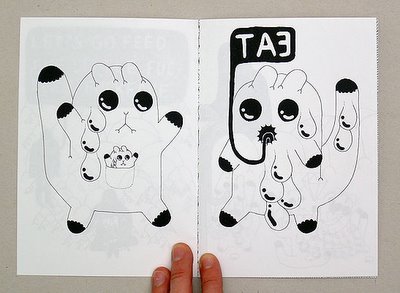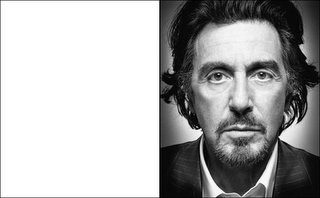Many people in South Africa view Winnie Mandela as a great South African. She is revered wherever she goes as a struggler against oppression and a mother of the nation.
When it comes to such large characters it is sometimes hard to distinguish fact from fiction, the profound from the everyday and the sordid. Thus, in honor of icons and mortals alike, I have written a short biopic of Winnie, with the aim of bringing to the surface the person behind the personage.
Winnie Madikizela was born in either 1934 or 1936, depending who you ask. Her father was a minister in the Transkei in the 1950s, and despite restrictions on the education of blacks during Apartheid, her wealthy background allowed her to escape many of the hardships of the period; she earned a degree in social work from the Jan Hofmeyer School in Johannesburg, and several years later earned a bachelor's degree in international relations from the University of Witwatersrand. Yet it was during her time as a social worker that she became, in her own words, “politicized’. To quote from the ANC’s web page on Winnie:
”It was while working as the first black medical social worker at Baragwanath Hospital that I started to become politicized" says Mandela. "I started to realize the abject poverty under which most people were forced to live, the appalling conditions created by the inequalities of the system. Above all, I became politically conscious through the research I had carried out in Alexandra Township to establish the rate of infantile [sic] mortality - it was 10 deaths in every 1,000 births."
(As an aside, infant mortality under the ANC government today is 62 per every 1,000 births – six times the rate of 1950s Apartheid South Africa.)
By 1958, and coinciding with her first detention, Winnie Mandela’s education and commitment to the struggle saw her rise to power within the ANC ranks, becoming chairperson of the Orlando West branch of both the ANC and the ANC Women’s League. It was, however, her husband Nelson Mandela’s imprisonment for terrorism in 1962 that sealed her fate as a living symbol of the struggle against Apartheid.
Over the next thirty years, Winnie was part of many organized campaigns against Apartheid. She was also imprisoned many times herself, the longest having been 18 months in solitary confinement in Pretoria Central Prison in 1969, awaiting trail under the Suppression of Communism Act. After initially being found guilty, Mandela and the other accused were discharged on appeal. In May 1977 Winnie Mandela was internally exiled to the town of Brandfort for nine years. Here her house was bombed twice by the Apartheid government.
On release from Brandfort in 1985, Winnie returned to her home in Soweto. During her absence, 600-plus groups had allied together as a surrogate ANC under the title of the United Democratic Front (UDF). As the ANC was banned, the UDF filled the vacuum and became an umbrella organization for all groups opposing Apartheid and supporting a non-racial South Africa. Winnie decided to have nothing to do with the UDF, mainly because she was jealous of its support, and formed her own personal vigilante group - the Mandela United Football Club (MUFC), comprising of nothing more than a group of her personal bodyguards. Reports of their brutality were commonplace in Soweto.
Her reputation was further damaged by what many considered her sometimes bloodthirsty rhetoric, the most noteworthy example of this being a speech she gave in Munsieville in 1985, where she endorsed the practice of necklacing in the struggle to end Apartheid. She said, "with our boxes of matches and our necklaces we shall liberate this country".
"Necklacing," typically carried out by members and supporters of the ANC, consisted of binding a black adversary hand and foot, draping gasoline-filled tires around legs, midriff, and neck, and setting the victim ablaze. Often, children were forced to witness their parents' agonizing deaths.
In August 1990, after the unbanning of the ANC by the National Party/Apartheid government, Winnie was appointed head of the Welfare Department of the ANC, in charge of repatriating exiles. Welfare NGOs petitioned the ANC against her appointment. Even the ANC National Executive Committee tried to remove her. But Nelson Mandela, on his way to becoming the first president of the new South Africa, personally blocked these attempts.
In 1991, Winnie Mandela was found to be complicit in the brutal killing of a 14-year-old boy named "Stompie" Seipei in 1989. Stompie, it emerged, was a pawn in an elaborate sting by Winnie to ensnare a popular white Methodist minister, Paul Verryn, in a homosexual honey-trap. Verryn was a radical with an intrepid record of opposition to Apartheid, who sheltered youths on the run from the police. Winnie was jealous - her white rival had begun attracting more funds from abroad for community projects than her football club. Winnie kidnapped Stompie and, with young men from her club, beat him to near death when he denied he had ever been touched by Verryn.
Stompie’s body was found on waste ground near Winnie's home, his throat and his head caved in.
Winnie Mandela was sentenced to six years’ imprisonment for kidnapping and assaulting Stompie. In an unprecedented and widely mocked appeal-court judgment at the time, her jail sentence then was reduced to a R15,000 fine. Her alibi, which Chief Justice Michael Corbett said persuaded him to suspend her jail sentence, was subsequently proved to be a lie at a 1997 hearing of South Africa’s Truth and Reconciliation Commission. Her two co-accused went to prison.
Then in 1992 she was accused of misappropriating funds from her department. Nelson Mandela, in the hope of saving face and ensuring he was seen to be politically and morally strong enough to steer the country from the brink of civil war, distanced himself from Winnie.
In 1994 she was elected as ANC MP and became a junior minister, but in 1995, she was sacked from her post because, among other things, she had criticized the government's approach to social reform, made an unauthorized trip abroad, split the ranks of the African National Congress' Women's League and has also been accused by police of bribe-taking and influence-peddling. In 1996 President Mandela divorced her on grounds of adultery, and at the court hearing neither she nor her lawyers contested Mandela's assertions of her "brazen infidelity" following his 1990 release from 27 years of political imprisonment.
In 1997, she was summoned before the Truth and Reconciliation Commission (TRC), on allegations that she was involved in at least 18 human rights abuses, including eight murders during the Apartheid years. One of her former bodyguards, a Mr. Jerry Richardson, testified in front of Archbishop Desmond Tutu and the TRC panel that he had killed Stompie "like a goat" with a pair of garden shears on the orders of Winnie Mandela. He has also admitted killing three other suspected "impimpis" (police informers) on Winnie's orders.
It should also be noted that Mr. Richardson had nothing to loose: Richardson is serving life in prison for murdering Stompie and a policeman in an unconnected case.
By 2000 Winnie Mandela had become a detestable within the ANC. Not only did she not toe the party line, but she openly criticized the policies of President Thabo Mbeki. This conflict culminated in the "War of Winnie's Hat", an unseemly clash between Mbeki and Winnie Mandela when he showed his ire at her late arrival at a party function in June 2001 by knocking her hat off.
In July 2002 Winnie Mandela was charged with 85 counts of fraud and theft involving more than a million rand. Her crime was to have applied for multiple bank loans at favourable rates in the names of fictitious members of the ANC Women’s League, of which Winnie was president at the time of the fraud.
On April 24, 2003, she was found guilty on 43 counts of fraud and 25 of theft, and her broker, Addy Moolman, was convicted on 58 counts of fraud and 25 of theft. Winnie Mandela was sentenced to five years imprisonment on convictions for theft and fraud. In a change of tactics, Winnie Madikizela-Mandela pleaded that she had defrauded the money on behalf of poor women. But the magistrate, observing that the cheap loans had ended up in Winnie’s personal bank account, said: "You are no Robin Hood. The message has to be sent out that this type of behaviour is unacceptable and will not be tolerated, no matter who the transgressor.”
Yet even with a mountain of evidence against her, Winnie escaped doing a day of prison time when an appeal judge upheld her prison sentence on 43 convictions of fraud, but suspended it for five years.
When the Iraq War started, Winnie once again showed her selflessness and courageous spirit by volunteering to be a “human shield”. The subheading on the WorldNet daily article read: “Nelson's ex-wife, convicted of helping murder child, wants to protect Iraqi kids”.
More recently, Parliament’s General Assembly fined her in 2003 for failing to disclose her earnings and gifts. Winnie, who just turned 70, seems to be far from an end. With million still celebrating this thief, I hope that she will disappear into the hollow emptiness of legend, before the actual Winnie does any more harm.
In the final analysis, who was the hero: Winnie, or her child victim Stompie?
And where is his justice, his freedom?




















